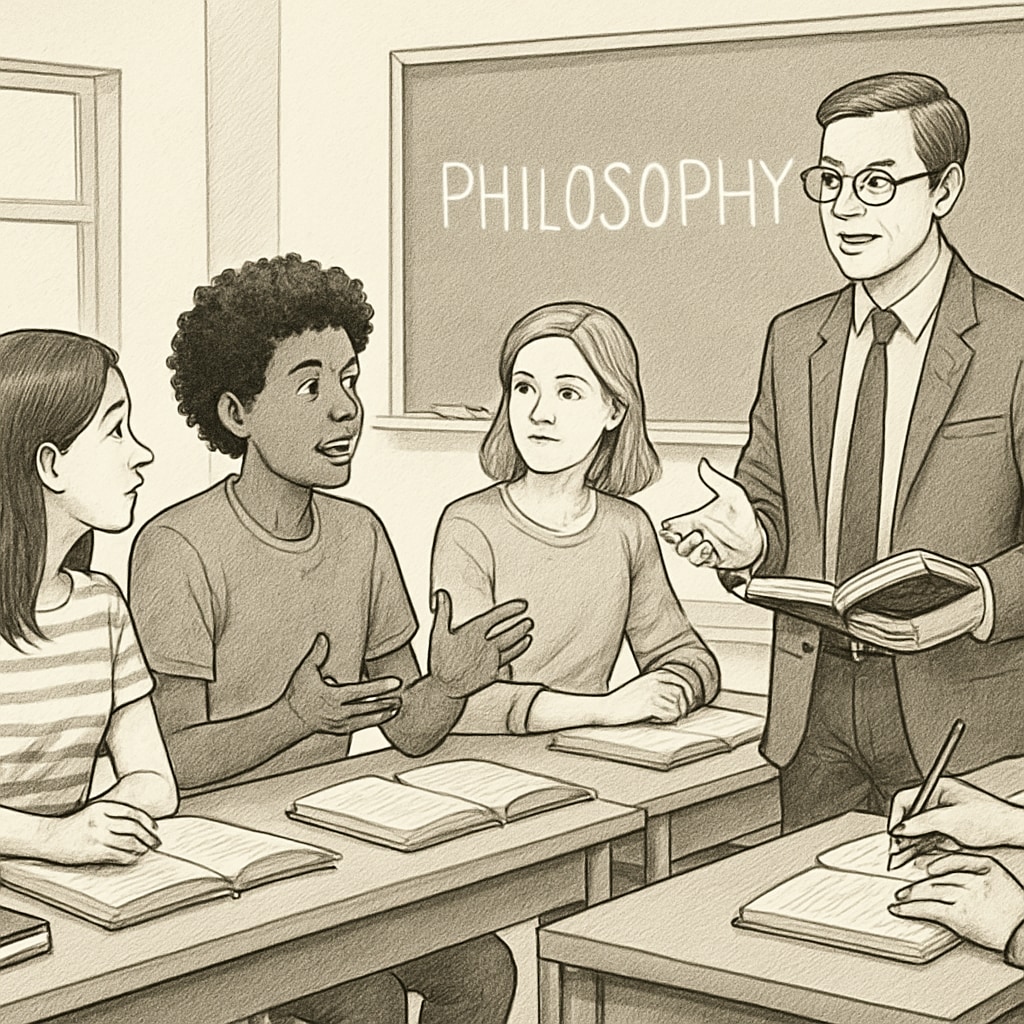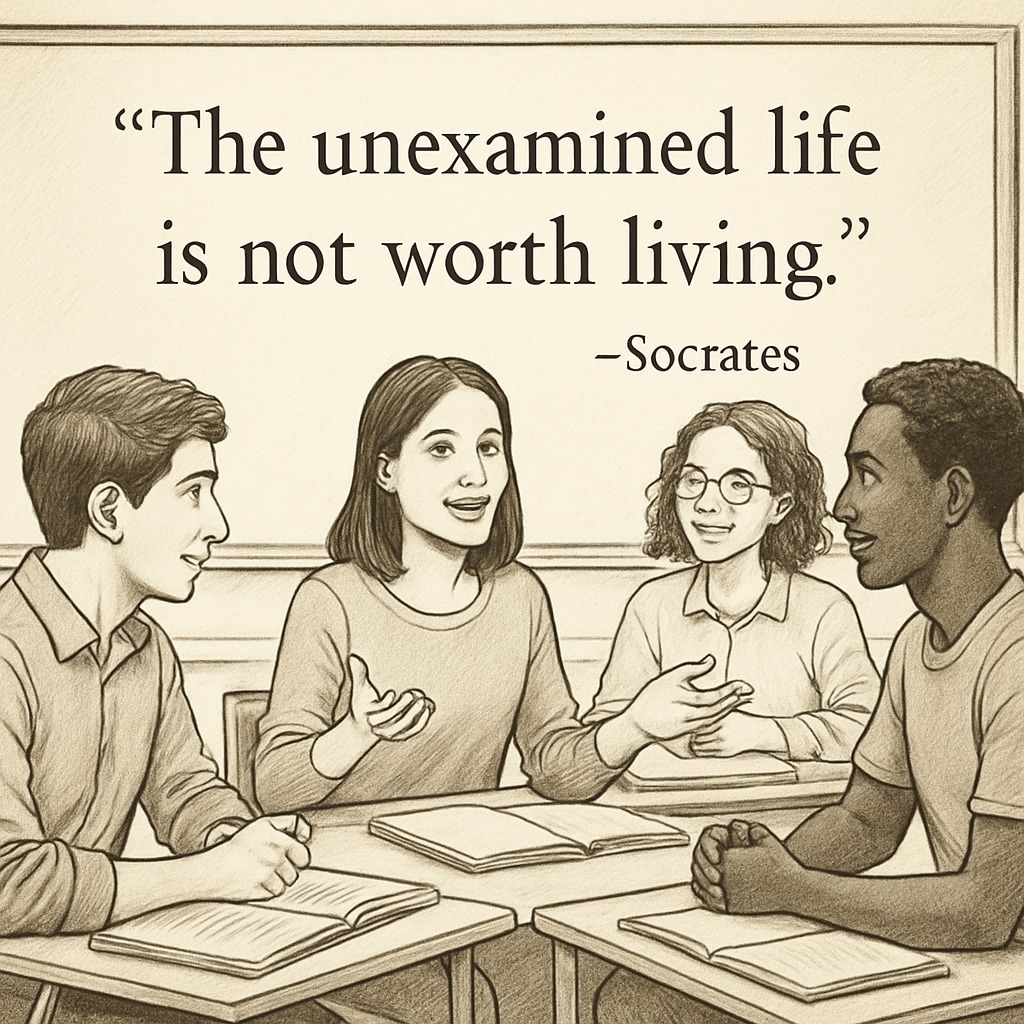In an effort to transform traditional education, a groundbreaking social experiment is underway to integrate philosophy into K12 classrooms. This initiative emphasizes the recruitment of philosophy teachers to lead the “Philosophy Thinking Enlightenment Program,” designed to foster critical thinking, inquiry, and intellectual exploration among young learners. As education evolves, the role of philosophy in shaping the minds of future generations is becoming increasingly evident.

Why Philosophy Matters in K12 Education
Philosophy, often reserved for higher education, can have profound benefits when introduced at earlier stages of learning. By teaching students how to critically assess ideas, question assumptions, and explore abstract concepts, philosophy nurtures intellectual curiosity and prepares them for complex problem-solving in adulthood. For example, the Socratic method (a form of cooperative argumentative dialogue) encourages students to engage in thoughtful discussions, promoting active learning rather than passive reception.
Research shows that early exposure to philosophical thinking improves reasoning skills, enhances empathy, and fosters better communication. According to a study published on Philosophy for Children on Wikipedia, students who participated in philosophy programs demonstrated significant improvements in literacy and numeracy. These findings underscore the need for philosophy in K12 education.
The “Philosophy Thinking Enlightenment Program”
Our social experiment, titled “Philosophy Thinking Enlightenment Program,” aims to bridge the gap between philosophy and early education. We are recruiting philosophy teachers to lead this initiative and design curricula that instill critical thinking in students. The program will cover topics such as ethics, logic, and metaphysics, tailored to be age-appropriate and engaging for young minds.
Key objectives of the program include:
- Encouraging students to question and explore ideas critically.
- Developing skills for rational argumentation and debate.
- Promoting intellectual humility and open-mindedness.
- Fostering curiosity about societal and existential questions.
Philosophy teachers participating in the program will also evaluate its effectiveness using innovative assessment methods, such as reflective essays and group discussions, alongside traditional metrics like grades and university scoring systems.

Recruiting Philosophy Teachers: Join the Movement
We are seeking passionate philosophy educators who are eager to contribute to this transformative social experiment. Ideal candidates should have expertise in philosophy and experience in teaching or curriculum development. Teachers will play a pivotal role in shaping the program and guiding students through philosophical exploration.
Benefits for participating teachers include:
- Opportunities for professional growth and collaboration.
- Access to innovative teaching resources and methodologies.
- Recognition for contributing to educational innovation.
- A chance to make a lasting impact on the way students think and learn.
Interested educators can apply through our official recruitment portal. Together, we can redefine the boundaries of education and inspire a new generation of thinkers.
Conclusion: A Call to Action
The integration of philosophy into K12 education is not merely an academic exercise—it is a societal imperative. Our social experiment aims to empower students with tools for critical thinking and intellectual curiosity, laying the foundation for a more thoughtful, compassionate, and capable generation. Philosophy teachers have a unique opportunity to be at the forefront of this movement.
If you are passionate about education and philosophy, join us in this groundbreaking effort. Together, we can make a difference, one classroom at a time.
Readability guidance: Short paragraphs and clear headings ensure accessibility. Lists summarize key points for clarity. Active voice and transitional phrases improve flow.


